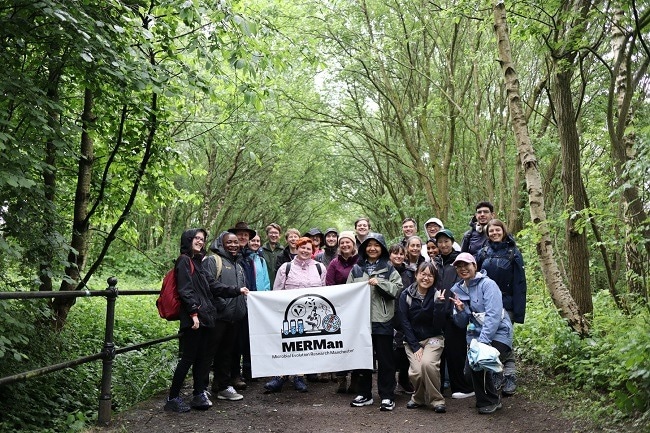Scientists have discovered a way to control mutation rates in bacteria, paving the way for new strategies to combat antibiotic resistance.

Image Credit: The University of Manchester
Antibiotics are given to kill bad bacteria, however with just one mutation a bacteria can evolve to become resistant to that antibiotic, making common infections potentially fatal.
The new research, published today in the journal PLOS Biology, used high-performance computing to simulate more than 8,000 years of bacterial evolution, allowing scientists to predict mechanisms that control mutation rates. They then made more than 15,000 cultures of E. coli in lab conditions to test their predictions - that’s so many that if you lined up all of the bacteria in this study, they would stretch 860,000km, or wrap around the Earth more than 20 times!
The tests revealed that bacteria living in a lowly populated community are more prone to developing antibiotic resistance due to a naturally occurring DNA-damaging chemical, peroxide. In crowded environments, where cells are more densely packed, bacteria work collectively to detoxify peroxide, reducing the likelihood of mutations that lead to antibiotic resistance.
The finding could help develop "anti-evolution drugs" to preserve antibiotic effectiveness by limiting the mutation rates in bacteria.
Antibiotic resistance presents an existential challenge to human health. Bacteria rapidly evolve resistance to the antibiotic drugs we use to treat infections, while new drugs aren’t being developed fast enough to keep up.
If we can’t keep antibiotics working, routine surgery could be a life-or-death encounter, with common infections becoming untreatable.
By understanding the environmental conditions that influence mutation rates, we can develop strategies to safeguard antibiotic effectiveness. Our study shows that bacterial mutation rates are not fixed and can be manipulated by altering their surroundings, which is vital on our journey to combat antibiotic resistance."
Rowan Green, Lead researcher, The University of Manchester
Peroxide, a chemical found in many environments, is key to this process. When E. coli populations become denser, they work together to lower peroxide levels, protecting their DNA from damage and reducing mutation rates. The study showed that genetically modified E. coli that is unable to break down peroxide had the same mutation rates, no matter the population size. However, when helper cells that could break down peroxide were added, the mutation rate in these genetically modified E. coli decreased.
The research builds on previous findings by Microbial Evolution Research in Manchester (MERMan) group, which indicated that denser bacterial populations experience lower mutation rates. The current study uncovers the specific mechanism behind this phenomenon, highlighting the role of collective detoxification in controlling mutation rates.
The research team, part of the Microbial Evolution Research in Manchester (MERMan) collective, conducted this extensive study with contributions from researchers at all career stages. The lab work was primarily carried out by a PhD student, alongside six undergraduate and master's students, under the guidance of four lab group leaders.
Source:
Journal reference:
Green, R., et al. (2024). Collective peroxide detoxification determines microbial mutation rate plasticity in E. coli. PLOS Biology. doi.org/10.1371/journal.pbio.3002711.